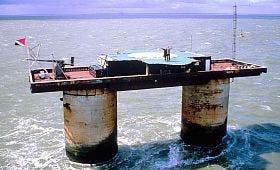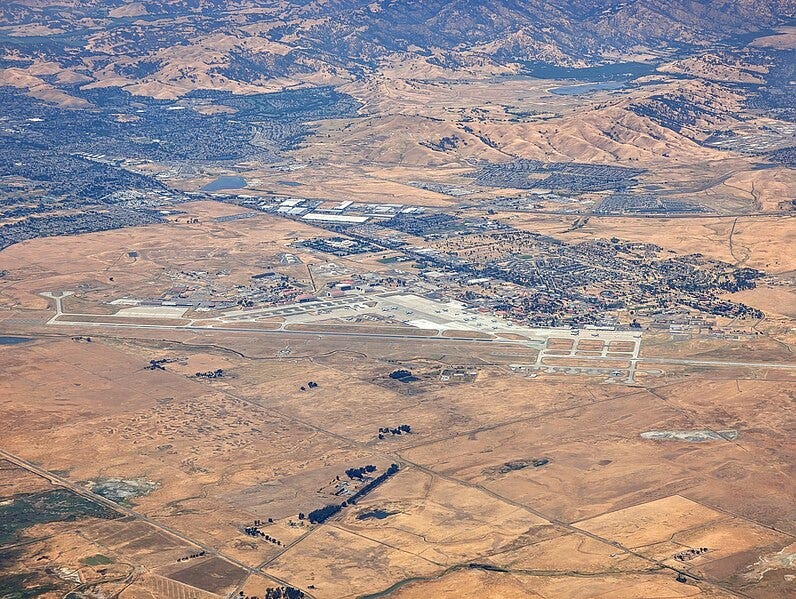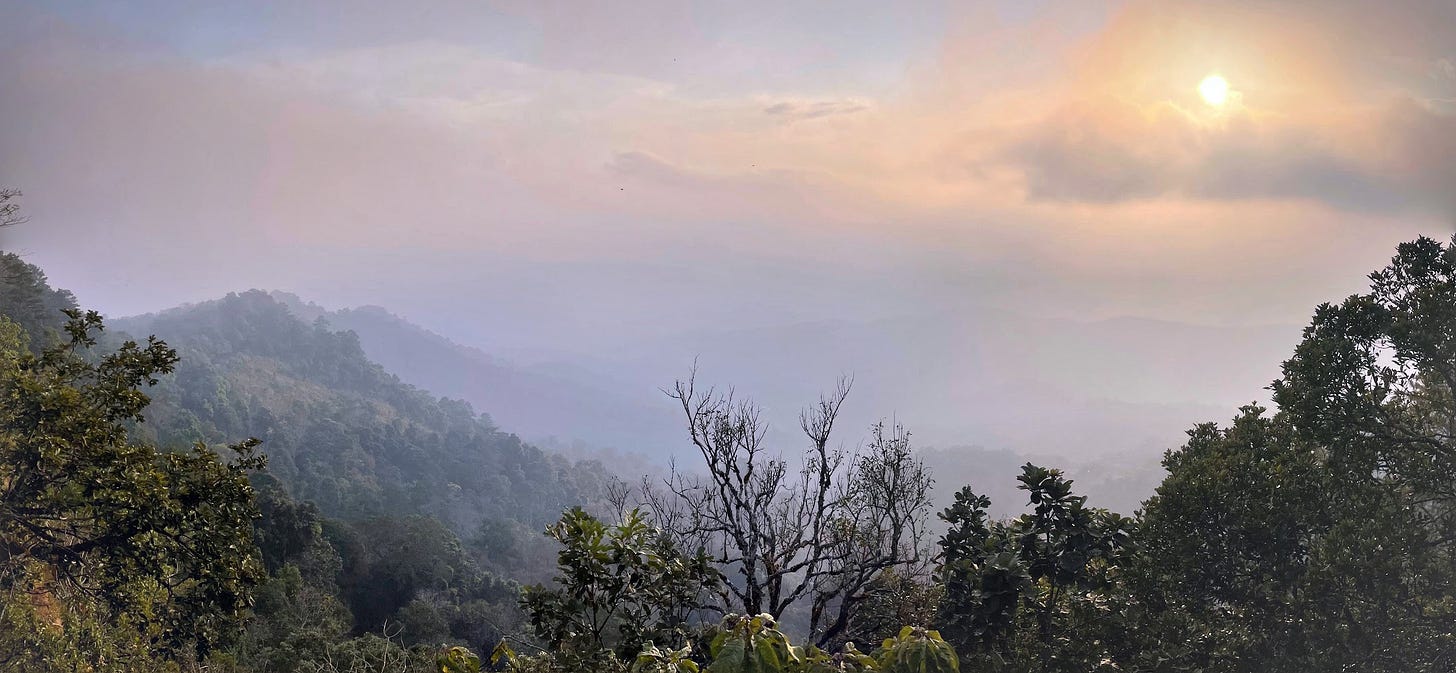Atlas Shrugged was a work of fiction. But nearly seventy years after its publication, a lot of powerful people are putting a lot of serious money into bringing its ideas to life.
I haven’t read Atlas Shrugged, yet. But after reading a few Wikipedia articles doing a lot of deep research, it seems the premise is roughly this: a bunch of obscenely wealthy capitalists get tired of burdensome government regulation, and finally decide to fuck off to a remote mountain town to live their best lives.
Atlas Shrugged was, of course, fiction. But nearly seventy years after Ayn Rand first published the book, a lot of powerful people are putting a lot of serious money into bringing its ideas to life.
Over the last few weeks, we’ve discussed the tendency of governments to lean on large tech companies to conduct citizen surveillance. And then asked if these companies acting as “surveillance intermediaries” might sometimes even be a good thing.
This week and next, we’ll look at an even wilder idea. Rather than partner with governments, what if Silicon Valley billionaires, assured by success building and running private tech companies, try building and running their own governments?

“Startup nation” and city projects like this aren’t necessarily new. Liberland began in 2015 when a man named Vít Jedlička claimed “that an uninhabited stretch of floodplain on the Croatian bank of the Danube is the territory of a new independent country.” And there’s also Sealand — the sole territory of which is a sad-looking WWII anti-aircraft platform, roughly the size of a tennis court — that as of this writing houses precisely one permanent resident. Neither of these “micronations” has yet been recognized by a single foreign government.
And many more projects like these are coming down the pike. Some appear quite unserious, like the phenomenally strange promotional video for “Cryptoland” that emerged a few years back. And last year Kanye West announced hopes to build DROAM, a 100,000 acre city “somewhere in the Middle East.” (The history of western powers arbitrarily drawing national borders in the region, of course, suggests this may not go swimmingly.)
But some of these projects have serious financial and ideological backing. Financial support from billionaires like Peter Thiel, and ideology spread with evangelical zealotry by highly-influential individuals in Silicon Valley.
In other words it’s fun to laugh at these projects, but some very powerful people are taking them very seriously.
Proposed sites for “startup government” projects tend to be relatively uninhabited: deserts, islands, small beach communities. Areas where no one lives — or more accurately “no one,” nobody with enough power to repel the vast wealth accompanying them. They’re frequently in the Global South, in low-GDP nations with governments willing to turn a blind eye to social experiments that might elsewhere raise concerns.
There’s even a proposal to build a nation-state entirely in the cloud 😶🌫️, online and distributed. A bunch of Zoom citizens engaging in Zoom democracy, in studio apartments set to lofi beats.
Utopia!
The heralds of these projects say they plan to design them for everyone, and not just the uber-wealthy. This is almost surely untrue, as we’ll see — but though money may not buy good taste, it sure as hell funds good marketing.

The most notorious of these projects is likely California Forever, a proposed “startup city” wealthy Silicon Valley backers have stealthily planned to build amidst central California farming communities. The project was placed on hold by voters this summer, though of course it may find new life.
And Telosa, a proposed city aiming to create “a more equitable and sustainable future,” aims to one day host over five million residents. This would make it the second-largest city in the United States — roughly twice the size of both Chicago and Houston.
Among other big unknowns, it’s unclear where a city like this would go. Telosa’s website outlines how the project may build on cheap land in the American desert west — which raises questions of water access — and, interestingly, Appalachia — which raises questions of where to find huge tracts of empty buildable space.
The project page looks as though ChatGPT were asked to animate “The Coachella Valley, but as lush as Singapore” — so again, the marketing sure is good.

From Cities to States
At least California Forever and Telosa propose to build “only” new cities, and in the United States. Extravagant and tone-deaf as they may appear, they would at least presumably be bound by national laws and cultural conventions, and occupy (relatively) small swaths of physical land.
But there are much wilder ideas than these. Ideas more sinister, more Rand-ian, more dystopic.
Praxis, which raised nearly $20 million last year, is perhaps the granddaddy of them all. Its founder, a 27-year-old man, says the organization plans to build “a city from scratch,” “somewhere in the Mediterranean.”
But as with Telosa, the devil’s in the details. It’s not so easy today to find land that is unclaimed, unpopulated, and supportive of human life and community. One presumes this is why Sealand’s founders started their “nation” by effectively squatting on a piece of retired military infrastructure.
(As an aside — let’s for a moment consider the wide gulf in views toward squatter’s rights imaginably held by these “startup nation” founders, depending on who’s exercising them. When it’s a family forced out of housing by rising rent, squatting is unethical and terrible. “Get a job, you bums!” But when it’s a crypto billionaire? That’s just bold and visionary entrepreneurship, baby.)
Anyway, despite the likelihood Praxis’s founder will soon realize the futility of his ideas and quietly retire to an (extant) island nation with the remaining investment money, the project claims it has a long waitlist of hopeful residents. It is in fact accepting applications for a “Steel Visa ID” to join its ranks today!
I tried finding some pithy quotes to share from the application here, but it’s bonkers all the way down. And I think the text is instructive of the worldviews of many involved in these projects anyway, so here it is in full:
GET YOUR PRAXIS STEEL VISA ID
Praxis is building a new nation, initially online. Our mission is to build a better future for Western Civilization. As individuals, we pursue the traditional paths of self-overcoming: heroism and contemplation. As a people, we seek a life among the stars.Our Citizenry includes thousands of people from dozens of countries who have built technology companies worth >$400B. The courageous are joining us on this quest — will you?

Peter Thiel, the billionaire who helped found PayPal and Palantir and bring JD Vance to power, has invested in Praxis. And, utterly unsurprising given his politics, Thiel has inserted his moneyed tendrils into numerous other projects elsewhere in the Atlas Shrugged fanfic space too.
We’ll discuss more of his projects next week, but one to note briefly here is the Seasteading Institute. It’s hard to tell if this is still active, but it’s worth considering the project’s name.
“Seasteading,” of course, evokes the 1862 US Homestead Act to settle the American West. Homesteading then relied on a narrative of new American land as devoid of “civilization” and people — or at least, people who mattered in the eyes of the US federal government. And just as in mid-19th century America, the stated plans of many startup nations to “build from scratch” on beaches, islands and in remote deserts will likely prove anything but true.

Even Bitcoin Beach in El Salvador, which we explored earlier this year, could be considered an example of a “crypto-colonial” project like these. The story of Bitcoin Beach — much like Praxis, Seasteading Institute, and others — is one of cryptocurrency-wielding foreigners descending onto a small, impoverished community and enrolling it in a large social experiment, whether the community members consent to join or not. It’s “fuck around and find out” on a grand social scale — and when the “find out” goes awry, those in charge of “fucking around” can take their lives, and money, elsewhere.
It’s unclear where most of these startup nations and cities might ever be built. But if Bitcoin Beach and California Forever are any indication, it’s unlikely whatever communities exist there already will eagerly participate.
There are so many glaring problems with these ideas it’s hard to write about them all without making this already-long post even longer.
Even if we focus only on the US-based city proposals like California Forever and Telosa, the historic success of cities planned from the top-down is spotty at best.
James C. Scott (who passed away this summer) wrote of the frailty of top-down planning in his brilliant work Seeing Like a State. He coined the term “high modernism” to describe the failures of 20th century emphases on scientific and engineering principles over deeply human, historic ones.
And he explores the hazards of utopian thinking. As he wrote:
“The temporal emphasis of high modernism is almost exclusively on the future…. The past is an impediment, a history that must be transcended; the present is the platform for launching plans for a better future.”
If this doesn’t sound like an apt description of homesteading, “seasteading,” and the utopian visions of Praxis, Telosa, and the rest, then I don’t know what does.
Scott contrasts the imagined precision of top-down planning with bottom-up efforts to understand human life and society, such as that preached by urban theorist and social scholar Jane Jacobs. Jacobs today is best-known for her book The Death and Life of Great American Cities, in which she:
“...argued that urban planning should prioritize the needs and experiences of residents, and modernist urban planning overlooked and oversimplified the complexity of human lives in diverse communities.”
Now I don’t want to say I know a bunch of crypto / tech entrepreneurs will prioritize “rationalist”, scientific principles over bottom-up, anthropological ones when designing whatever cities and states they plan to build.
But I’ve spent enough time in Silicon Valley to know it’s really, really, likely.

The startup nation ideas, of course, raise even bigger questions than the cities.
The provision of healthcare and emergency services is one. In 2006, a fire on the platform “micronation” of Sealand necessitated the Royal Air Force airlift a resident to a hospital on the British mainland, despite the island having claimed independence from the country decades earlier.
And the provision of national security is another. The idea of an independent, freewheeling island nation might be lovely — until another, more heavily militarized nation discovers oil reserves beneath it, and sends a fleet of warships to claim it as their own.
And finally, these projects all smack of shockingly overt neo-colonialist vibes. Balaji Srinivasan for instance, about whom we’ll learn more next week, said in a podcast interview last year, per The New Republic:
“‘What I’m really calling for is something like tech Zionism,’ he said, after comparing his movement to those started by the biblical Abraham, Jesus Christ, Joseph Smith (founder of Mormonism), Theodor Herzl (‘spiritual father’ of the state of Israel), and Lee Kuan Yew (former authoritarian ruler of Singapore).”

I’ve listened to a lot of these guys — it’s almost all guys — talk about these ideas, and it’s remarkable the frequency with which the creation of Israel is pointed to as a model worth emulating.
A security contract startup founder at Srinivasan’s Network State Conference last year — attended by many big names in cryptocurrency and Silicon Valley — highlighted the need for startup nations and cities to amplify their physical security.
To illustrate this, he flashed a slide depicting a destroyed section of the Israel-Gaza border fence following Hamas’ attack. “The Israelis had the mentality that they were going to become a startup nation,” he said. He argued that startup nations will need “misinformation defense,” that “the internet is a battlefield.” He displayed a slide of a New York Times headline reporting hundreds of Palestinian deaths as proof.
This was a mere three weeks after the atrocities of October 7th initiated the current war, a war that’s caused incalculable destruction and the deaths of more than 41,000 Palestinians and 1,400 Israelis.
Regardless of one’s feelings about Israel today, it requires a particular bounty of hubris and unreflective thought to blithely claim such a project should be repeated anew. If a chief concern when developing a new nation “from scratch” today is ensuring its protection from attacks by those who called it home long before, one should ask why such a nation need even be built.
Song of the Week: We Were We Still Are — Future Utopias feat. Kae Tempest




